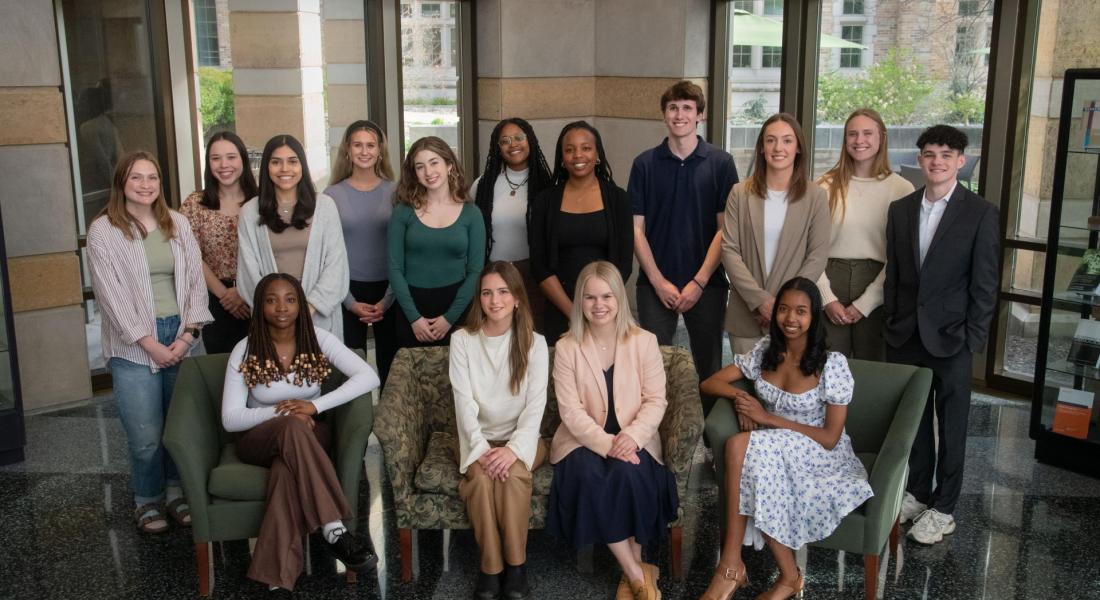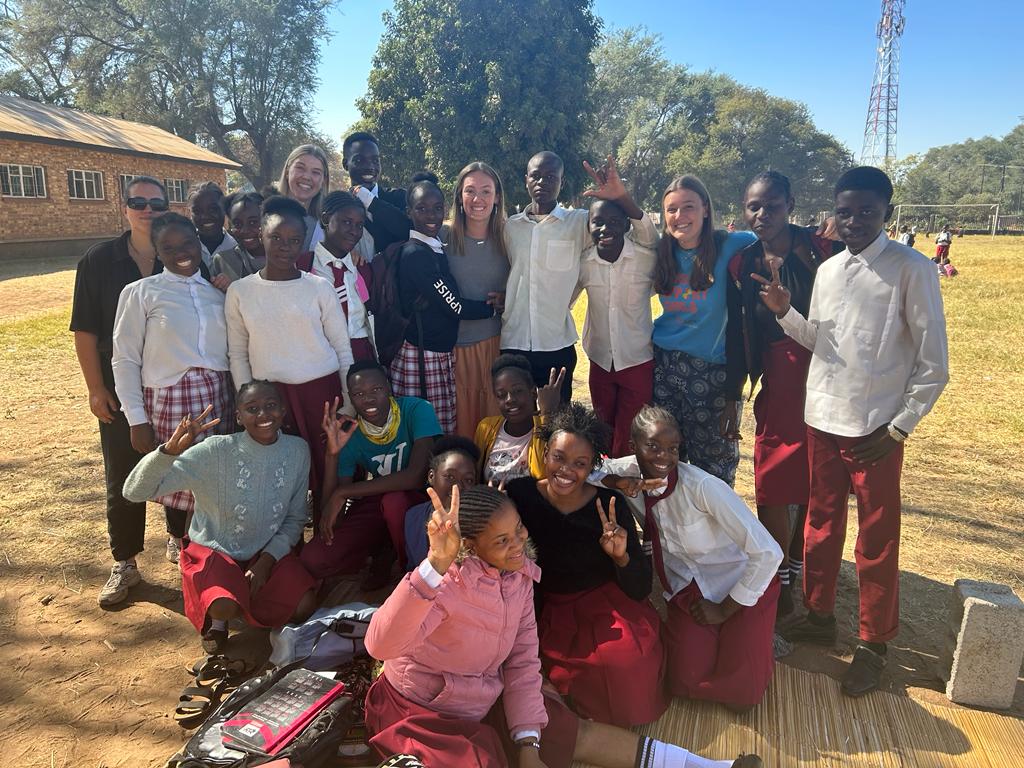
Students headed to Global South destinations through the Kellogg Institute for International Studies’ Pre-Experiencing the World Fellowship (Pre-ETW) are set to travel this month, as part of a program that’s intentional about welcoming students who may not yet see themselves as travelers abroad.
“The fellowship targets students from diverse socioeconomic backgrounds, first-generation students, and those with little or no experience in the Global South,” explains Jane Palmer ’26, who will return to Zambia as a co-leader after participating in the inaugural 2023 experience.
“It opens doors to cultivate cross-cultural competencies and foster friendships that transcend borders,” adds Palmer, a political science and global affairs major from Ireland. “The group will be thrust into a different culture full of color, food, lively music, and breathtaking nature. We will undoubtedly grapple with issues such as poverty, race, and privilege.”
 That’s the point of the Pre-ETW Fellowship program from the Kellogg Institute. It supports academic and research-oriented travel to less-familiar parts of the world. First- and second-year Notre Dame undergraduates can apply for the program in early March.
That’s the point of the Pre-ETW Fellowship program from the Kellogg Institute. It supports academic and research-oriented travel to less-familiar parts of the world. First- and second-year Notre Dame undergraduates can apply for the program in early March.
This year, one group of Pre-ETW students will travel to Peru for the first time, through funding provided by the late Sabine MacCormack, a Hesburgh Professor of Arts and Letters who was a Kellogg faculty fellow with deep commitments to Latin America, especially Peru.
That’s where Jessica Ashman ’24 is headed. “I am very interested in concepts of sociocultural identity, especially in Latin America,” says Ashman, who plans to pursue doctoral studies in sociocultural anthropology. “The idea that people are living lives in places and contexts so different from mine triggered a plethora of questions and ideas that I hope to explore.”
MacCormack was really passionate about indigenous people and the Quechua language in Peru, says Rachel Thiel, the Program Manager for Undergraduate Programs at Kellogg. Thiel, who will travel with the Pre-ETW group headed for Peru, took Quechua classes herself as an undergraduate student.
Thiel and Kellogg Associate Director Holly Rivers envisioned how a more inclusive program might attract students to explore the Global South and consider destinations beyond popular destinations in Europe. Pre-ETW makes it a priority to attract first-generation university students, often with limited resources, who have never applied for a passport, navigated airports, or seen other cultures.
“There are students who think this maybe is not for them,” said Thiel. “They think maybe they're not ready for that and we want to help them to take advantage of the opportunities.” It’s a first look at field research and experience in the relevant cultural and geological context.
“We hope that they develop the confidence and understanding to do a research grant,” adds Rivers. Already, one participant in last year’s Pre-ETW pilot program has received a grant to do research work in Côte d'Ivoire and another is headed for Uganda. Peer co-leader roles for previous Pre-ETW participants like Palmer are effective and create opportunity, too, Rivers said.
Lizzie Stifel ’24 heard about the fellowship from Ben Martin, a friend who went to Zambia with Pre-ETW last year, and others who recommended the experience. Because the program is new, it was not available when she was in the first two years of study that pre-ETW is meant to serve.
Stifel was born in South Africa and is not a novice at either international travel or the Global South, but she has an eye on sustainability issues across Africa through the lens of her political science major. She previously traveled to Kenya to present research on the benefit of trees for Ethiopian farms.
“In late February, Zambia declared an extreme drought, which has meant that tens of millions are facing hunger and water shortages. This is exacerbating the climate crisis in the country,” explains Stifel, who will work for the International Water Management Institute in Sri Lanka after graduation through a Princeton in Asia fellowship.
“I hope to spend the rest of my life working on sustainable development research, projects, and policy,” says Stifel. As a student co-leader with Palmer of the Zambia group, she hopes that first-time travelers in the group “will come away from this experience wanting to do the same.”
To that end, Palmer expects the Pre-ETW trip to encourage students to approach experiences with empathy and become informed global citizens committed to positive social change.
“Programs like this remind me of Kellogg’s commitment not only to its students but for those who face barriers to education globally,” she said.
The Kellogg Institute for International Studies, part of the Keough School of Global Affairs at the University of Notre Dame, is an interdisciplinary community of scholars and students from across the University and around the globe that promotes research, provides educational opportunities, and builds partnerships throughout the world on the themes of global democracy and integral human development.





